It was my senior year, and I thought it would be filled with exams, friends, and plans for the future. Instead, I was at home watching my grandmother decline from dementia. She often mistook me for her late husband, George. It drove me crazy—until one day, everything changed.
That day is one I will always remember. My grandmother, Gretchen, was not doing well. She was forgetful, confused, and her health was getting worse.

Mom and I knew something was wrong, but getting Grandma to see a doctor was not easy. She was stubborn and insisted she was fine. However, we finally convinced her to go.
After several tests, the doctor met with us and shared the news: dementia. I remember how Mom’s face fell when he explained that there wasn’t much they could do.
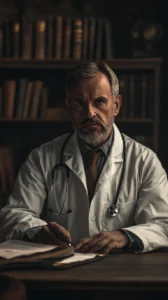
The medication might slow the disease down, but it wouldn’t stop it from getting worse. We had to accept that things were going to change.
That same day, we decided Grandma would move in with us. We couldn’t leave her alone, especially after my grandfather, George, passed away a few years ago. It was the right choice, but it didn’t make things any easier.

That night, I sat at my desk, trying to study for my exams. It was my final year, and I had a lot to handle. Then I heard her crying and whispering to someone.
I got up and walked toward her room, feeling sad. She was talking to Grandpa as if he were right there. It broke my heart to hear her, but there was nothing I could do.
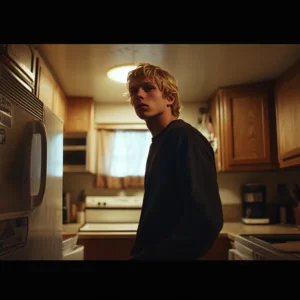
As the months passed, Grandma’s condition got worse. There were days when she didn’t recognize where she was or who we were. Those moments were short but still hurt deeply.
One morning, I came downstairs to find Mom cleaning the kitchen. She looked tired, like she hadn’t slept much.

“Did Grandma move everything around again last night?” I asked, already knowing the answer.
Mom kept cleaning. “Yes,” she said quietly. “She woke up in the night and said the plates and cups were wrong. I told her nothing had changed, but she didn’t believe me. She kept moving things around, looking for things that weren’t even there.”
I didn’t know what to say, so I just patted her back. “It’ll be okay,” I mumbled, even though I wasn’t sure it would be.

Mom shook her head. “You shouldn’t have to worry about this. You have school to focus on. Do you want some breakfast?”
I shook my head. “No, thanks. I’ll eat later.” I picked up an apple from the table to have something in my hand and headed for the door. Mom didn’t say anything as I left.

When I got home, the house was quiet. Mom was still at work. I heard soft footsteps upstairs. Grandma was moving around again. I followed the sound and found her in the kitchen, shifting plates and cups from one cabinet to another.
She turned when she saw me, her eyes lighting up. “George! You’re back!” She rushed toward me with open arms.
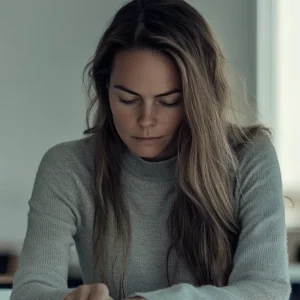
I froze, unsure what to do. “No, Grandma. It’s me—Michael, your grandson.”
But she shook her head, not hearing me. “George, what are you talking about? We’re too young to have grandchildren. Someone moved the dishes again. Was it your mother? She always changes everything.”
I stood there, feeling helpless. “Grandma, listen. I’m not George. I’m Michael, your grandson. You’re at our house, mine and your daughter Carol’s.”

Her smile faded, and she looked confused. “George, stop saying these strange things. You’re scaring me. We don’t have a daughter. Remember? You promised to take me on that date by the sea. When can we go?”
I sighed, not knowing how to respond. I couldn’t keep telling her the truth; she didn’t understand. “I… I don’t know, Grandma,” I said softly, then turned and left the kitchen.
When Mom got home, I told her what had happened.
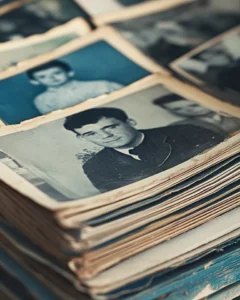
She sat down and smiled sadly. “I understand why she thinks you’re George.”
I frowned, confused. “What do you mean?”
Mom looked up at me. “You look just like him when he was young. It’s like you’re his twin.”
I was quiet for a moment. “I’ve never seen any pictures of him when he was younger.”
Mom stood up from the couch. “Come with me. I’ll show you.” She walked toward the attic and pulled down the stairs. I followed her up as she searched through a few old boxes. Finally, she handed me an old photo album.

I opened it. The first picture looked worn and faded. The man in it? He looked just like me.
“Is this Grandpa?” I asked, flipping through the pages.
“Yes,” Mom said softly. “See what I mean? You two really do look alike.”
“Too much alike,” I whispered, staring at the pictures.
“You can keep the album if you want,” Mom said.
That night, I sat in my room, flipping through the album again. I couldn’t believe how much I looked like him.

Grandma’s condition got worse every day. She barely spoke, and when she did, it was hard to understand her.
Sometimes she couldn’t even walk without help. Mom had to feed her most days. But no matter what, Grandma always called me “George.”
One afternoon, after she said it again, I snapped. “I’m not George! I’m Michael! Your grandson! Why don’t you understand?”
Mom looked up from where she was sitting. “Michael, she doesn’t understand anymore.”
“I don’t care!” I shouted. “I’m tired of this! I can’t handle it!”
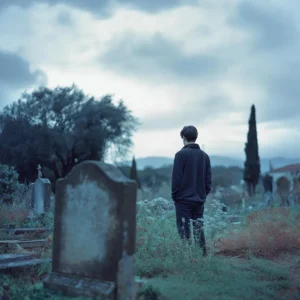
I turned toward the hallway, my anger boiling over.
“Where are you going?” Mom asked, standing up quickly.
“I need to get out of here,” I said, my voice shaking. I grabbed my jacket and slammed the door behind me before Mom could say anything else. I needed space, away from it all. Away from Grandma’s confusion and my own frustration.
Without thinking, I ended up at the cemetery where my grandfather was buried. I walked between the rows of headstones until I found his grave.
Seeing his name on the stone brought a lump to my throat. I sat down on the grass in front of it and let out a long, heavy sigh.
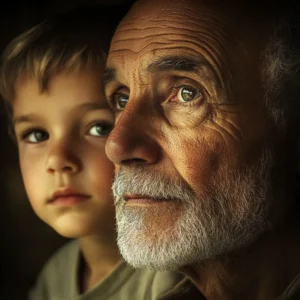
“Why aren’t you here?” I asked, staring at the headstone. “You always knew what to do.”
The silence felt deafening. I sat there for what felt like hours, lost in my thoughts. I couldn’t stop thinking about all the times Grandpa had been there for me, for Mom, for Grandma. He had a way of making everything seem simple, no matter how hard life got.
Then, suddenly, a memory hit me. I was about five or six years old, wearing Grandpa’s big jacket and hat, telling him I wanted to be just like him.
He laughed so hard, but I remembered the pride in his eyes. That memory made me smile, even as tears streamed down my face.
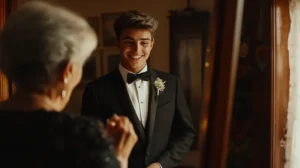
It was getting dark, and I knew I had to go home. When I walked through the door, Mom was waiting, her face tight with worry.
“After you left, I took Grandma to the doctor,” she said, her voice breaking. “He said she doesn’t have much time left.”
I walked over and hugged her tightly, no words coming to mind. At that moment, I realized what I had to do.
The next day, I put on the suit that used to belong to Grandpa. It felt strange, like I was stepping into his shoes for real this time. I took Mom’s car and drove Grandma to the sea. She sat quietly beside me, not saying much, but I knew she was lost in her world.
When we got there, I had already set up a small table by the shore. The sea breeze felt cool, and the sound of the waves was calming.
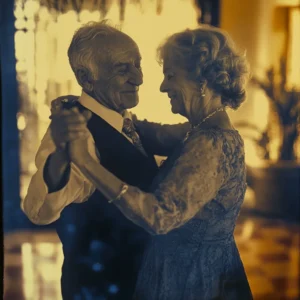
I helped Grandma out of the car and guided her to the table. After she sat down, I lit the candles, their warm glow flickering in the wind.
“George!” Grandma said with a big smile. “You remembered our date by the sea.”
Her voice was weak, but I could see how happy she was. She looked at me like I really was Grandpa, her eyes full of warmth.
“Yes, Gretchen,” I said, sitting beside her. “I never forgot. How could I?”
She nodded slowly, still smiling. “It’s been so long since we’ve been here.”
That evening, I served Grandma the pasta Grandpa always made. I had spent hours in the kitchen earlier, following his recipe, hoping it would taste just like she remembered.
As she ate, I watched her closely, searching her face for any sign of recognition. She took slow bites, and I could see something change in her expression—a flicker of happiness.
After dinner, I played their favorite song, the one they used to dance to. The familiar melody filled the air, and I stood up, holding out my hand. “Would you like to dance, Gretchen?”
She looked at me, her eyes softening. “Of course, George.” I gently helped her up, and we swayed together.
For the first time in a long while, she smiled. In that moment, I could see she wasn’t lost in confusion; she was back in her happiest memories.
On the way home, she held my hand. “Thank you, George,” she said. “This was the best date ever.”
I just smiled at her, my heart heavy but full.
Two days later, Grandma passed away. I remember waking up that morning and feeling like something was different, like the house was quieter than usual.
When Mom told me, I didn’t know what to say. We just sat together in silence for a while, both of us crying. It was hard to accept, even though we knew it was coming.
I felt deep sadness, but at the same time, a strange sense of peace. I knew Gretchen was finally with her George again, where she belonged.
Sassy Neighbor Drove All the Tenants Crazy at Night – So We Found a Way to Give Her a Taste of Her Own Medicine

When Michelle moved in, she refused to follow one simple rule: bring your key. Instead, she pounded on my window at all hours, demanding to be let in. After countless sleepless nights, the other tenants and I came up with a plan to give her a taste of her own medicine.
I’ve always been a stickler for rules. Call me boring, but there’s something comforting about knowing where you stand. That’s why I loved living in our little apartment block on Maple Street.
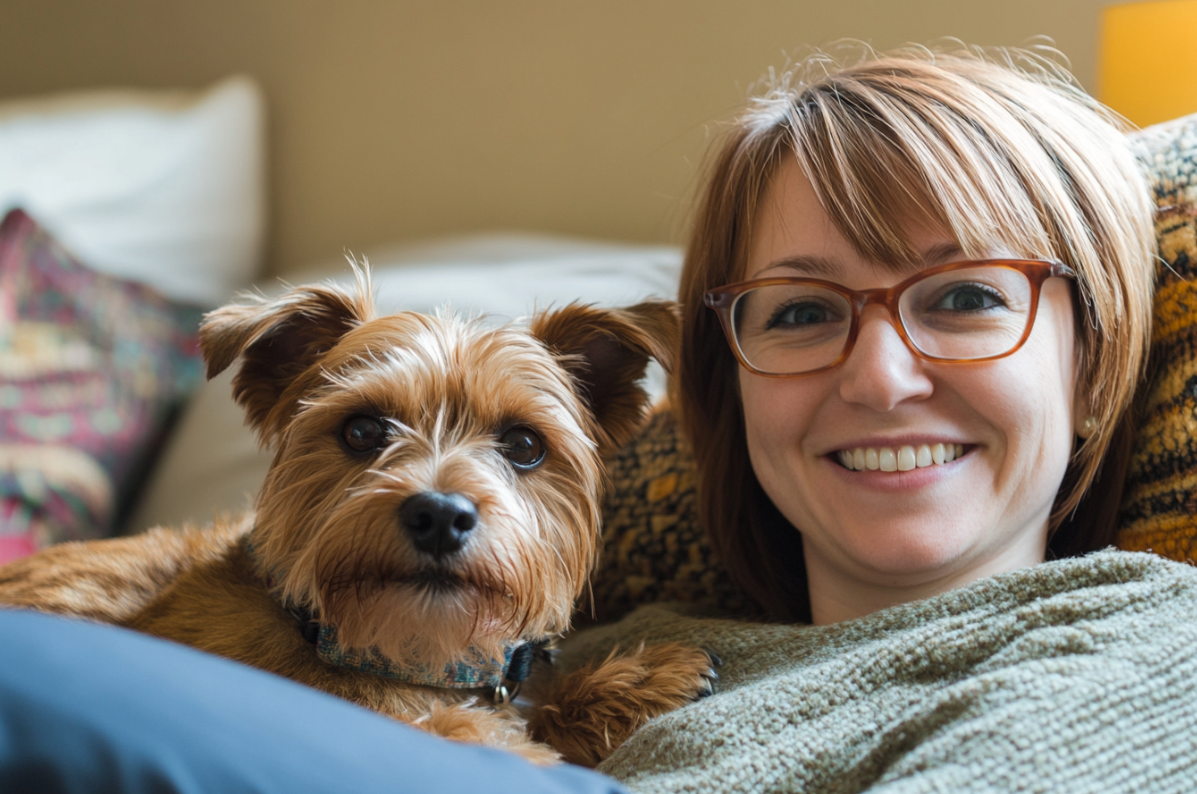
A woman and her dog | Source: Midjourney
We had one golden rule: after 8 p.m., you always carry your key. Simple, right? Well, it was until Hurricane Michelle blew into our lives.
The day Michelle moved in, I should’ve known trouble was brewing. I was collecting my mail when she strutted up the path, wild red hair flying, and enormous sunglasses perched on her nose despite the cloudy day.
“Hey, new neighbors!” she called out, voice loud enough to wake the dead. “I’m Michelle! Who’s gonna help me with these boxes?”

A woman waving | Source: Midjourney
I exchanged glances with Matt from 2B. He shrugged, and we both headed out to lend a hand. As we lugged boxes up the stairs, Michelle chattered away.
“This place is so cute! It’s like, totally retro. I can’t wait to spice things up around here!” She winked at Matt, who nearly dropped a box labeled “PARTY SUPPLIES.”
“Yeah, well,” I puffed, struggling with what felt like a crate of bricks, “we like it quiet around here. Especially after 8.”
Michelle laughed, a sound like tinkling glass.

A laughing woman | Source: Midjourney
“Oh honey, the night’s just getting started at 8!” She flipped her hair over her shoulder. “You’ll see, I’ll breathe some life into this place.”
I should’ve taken that as the warning it was.
For the first week, things were okay. Sure, Michelle’s music was a bit loud, and yeah, she had a habit of clattering up and down the stairs at all hours. But it wasn’t until the second Friday night that the real trouble started.

A woman in her home | Source: Midjourney
It was just past midnight when the first thump-thump-thump echoed through my apartment. My dog, Biscuit, lifted his head with a whine. I tried to ignore it, burying my face in my pillow. But then came the buzzing. It was incessant, like an angry hornet.
Groaning, I stumbled to the intercom. “Hello?”
“Heeeeey!” Michelle’s voice, slightly slurred, crackled through the speaker. “It’s me! I forgot my key. Can you let me in?”
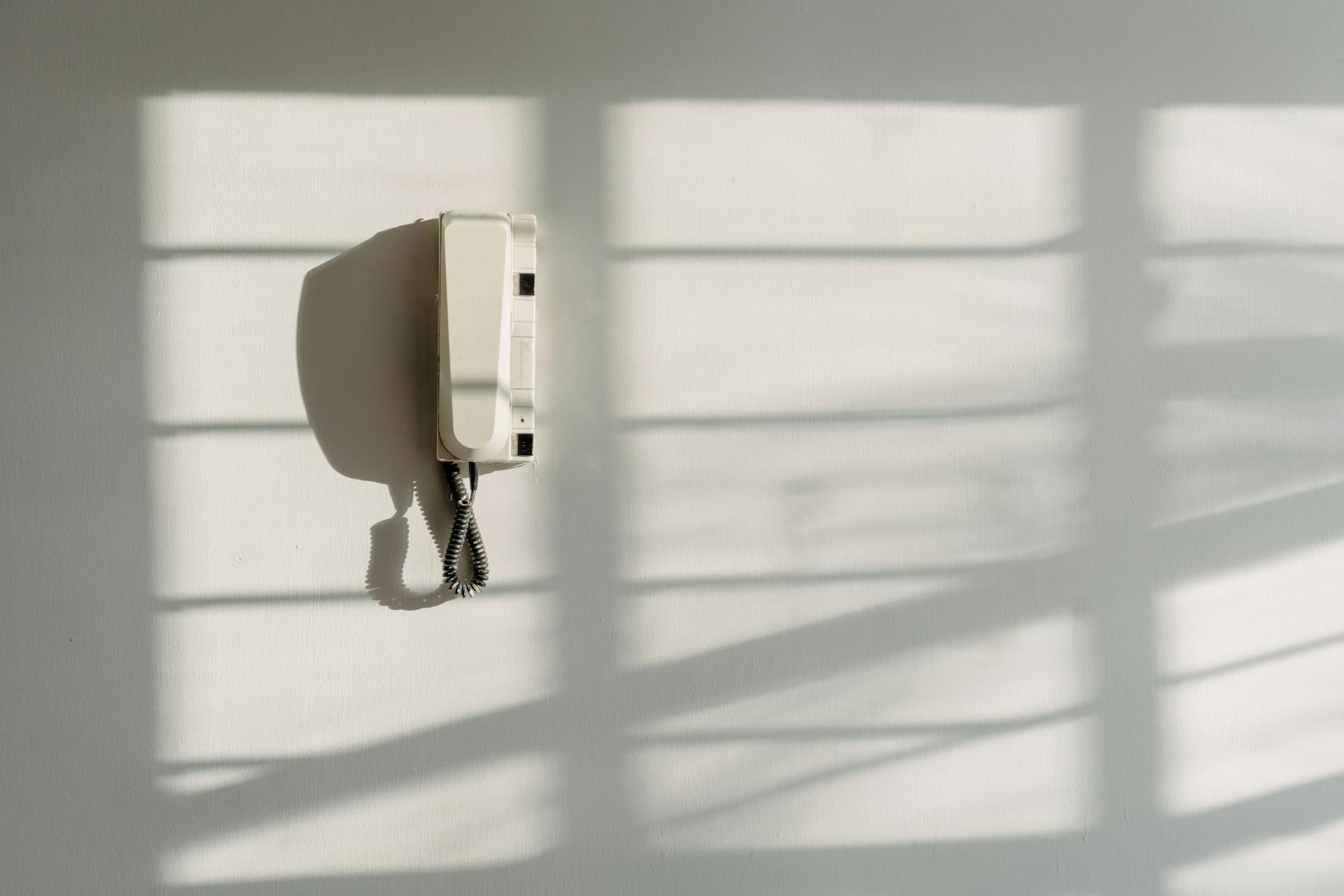
An intercom entry phone | Source: Pexels
I sighed, pressing the button to unlock the main door. My apartment was on the ground level so I opened my door to remind her about the key rule.
“Oh my god, you’re a lifesaver!” Michelle gushed, her breath reeking of tequila. “I was gonna be stuck out there all night!”
“Michelle,” I started, trying to keep my voice level, “remember the rule about always carrying your key after 8?”
She waved a hand dismissively. “Pffft, rules are made to be broken, right? Besides, you’re right here! It’s no problem for you to let me in.”

A laughing woman | Source: Midjourney
“Well, actually…”
But there was no point in saying anything more. Michelle had already clattered up the stairs and disappeared, leaving me standing in the foyer, fuming.
I wish I could say that was a one-time thing. But over the next few weeks, it became a nightly occurrence.
Sometimes she’d bang on windows, other times she’d ring every buzzer in the building until someone let her in.

A woman in front of a staircase | Source: Pexels
It didn’t matter if it was 10 p.m. or 3 a.m. — Michelle seemed to operate in her own time zone.
One particularly frustrating night, I was jolted awake by a rhythmic tapping on my bedroom window. Groaning, I glanced at my alarm clock: 2:37 a.m.
“Adrienne! Adrieeeeenne! Wake up, sleepyhead!”
That was the last straw for Biscuit, who ran over to the window and started yapping. I stumbled out of bed. Pulling back the curtain, I was met with Michelle’s grinning face, illuminated by the streetlight.
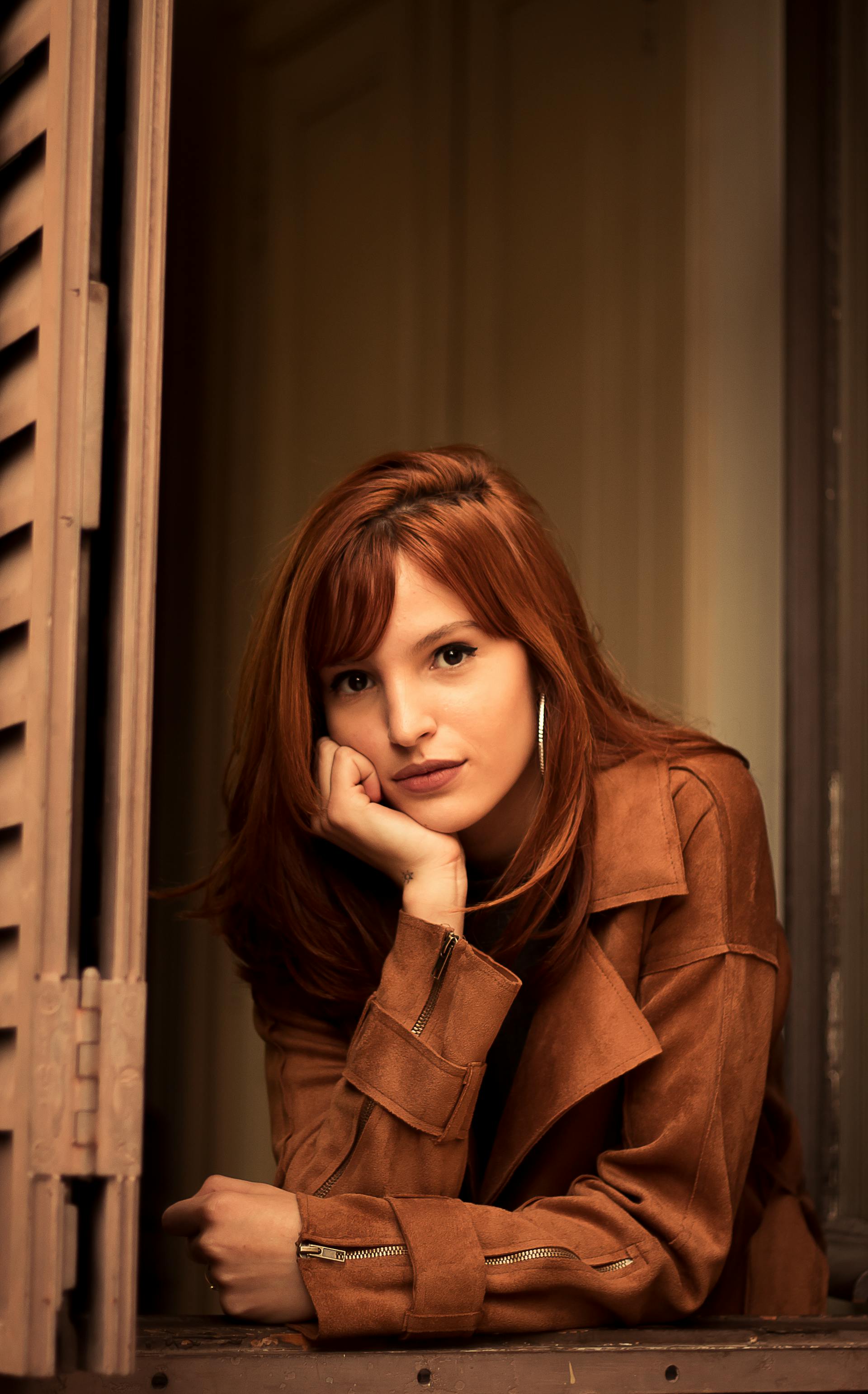
A woman at a window | Source: Pexels
“Michelle!” I hissed, sliding the window open. “What are you doing?”
She giggled, the sound grating on my already frayed nerves. “I forgot my key, Addy. Be a pal and buzz me in? I’ve been tapping at your window for ages already.”
I pinched the bridge of my nose, feeling a headache coming on. “Michelle, this has got to stop. You can’t keep doing this. What if I hadn’t been home?”
She shrugged, seemingly unbothered by the whole situation. “Then I would’ve buzzed Matt. Or Tiffany. Someone’s always home, right?”

A woman talking to someone | Source: Midjourney
The whole building was at its wit’s end. One day, Tiffany from 3A cornered me in the laundry room, dark circles under her eyes.
“Adrienne, we’ve got to do something about Michelle. I haven’t had a full night’s sleep in weeks!”
I nodded, feeling the weight of exhaustion myself. “I know, Tiff. I’ve tried talking to her, but she just laughs it off.”
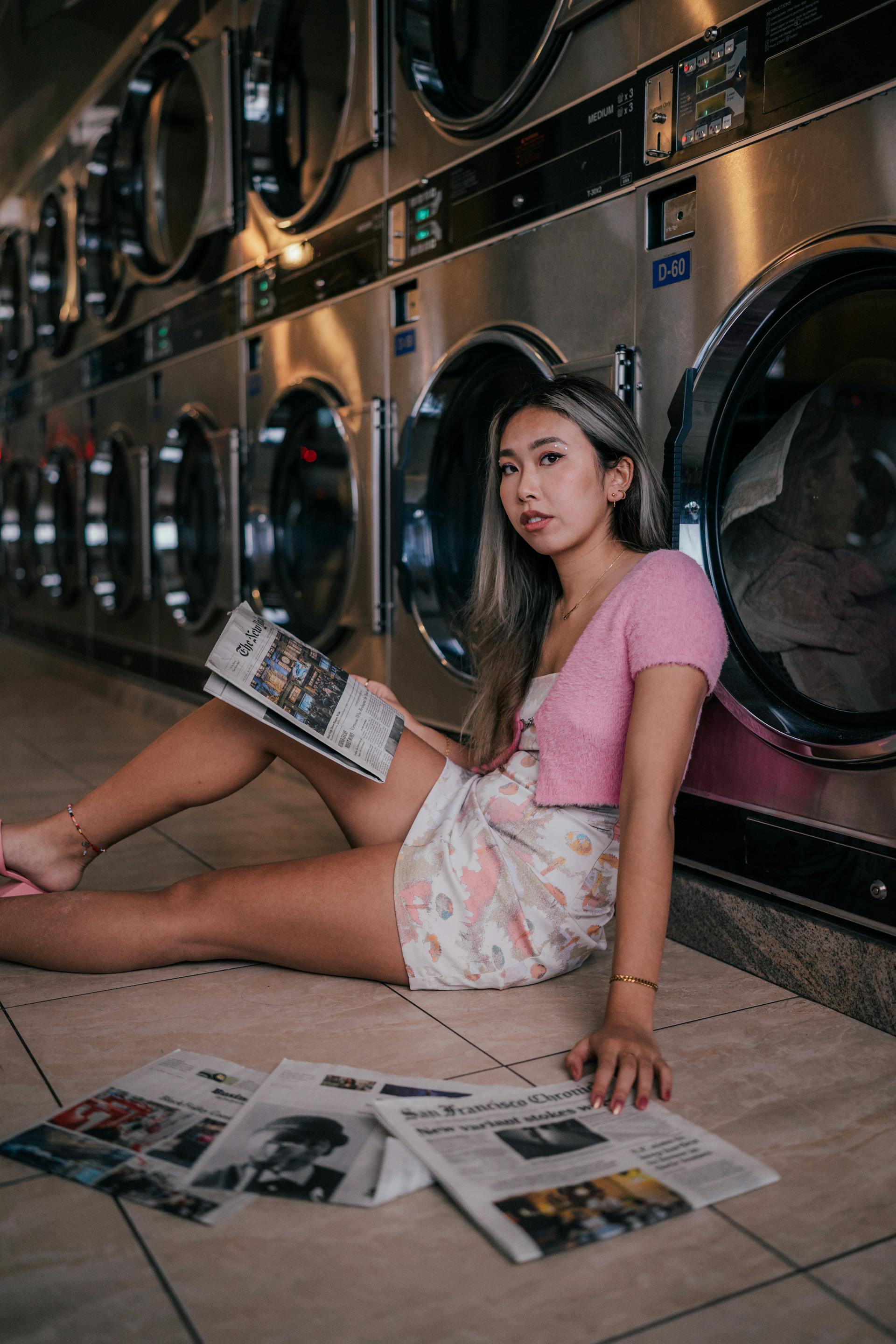
A woman in a laundry room | Source: Pexels
Matt joined us, his usually neat hair a mess. “I called the landlord,” he said, voice low. “Guess what? Michelle’s his niece. He said, and I quote, ‘She’s just having a bit of fun. You all need to lighten up.’”
“Lighten up?” Tiffany hissed. “I’ll show him ‘lighten up’ when I fall asleep at work and get fired!”
That’s when Riley from 4C spoke up. I hadn’t even noticed her lurking by the dryers.
“You know,” she said, a mischievous glint in her eye, “if Michelle won’t listen to reason, maybe we need to speak her language.”
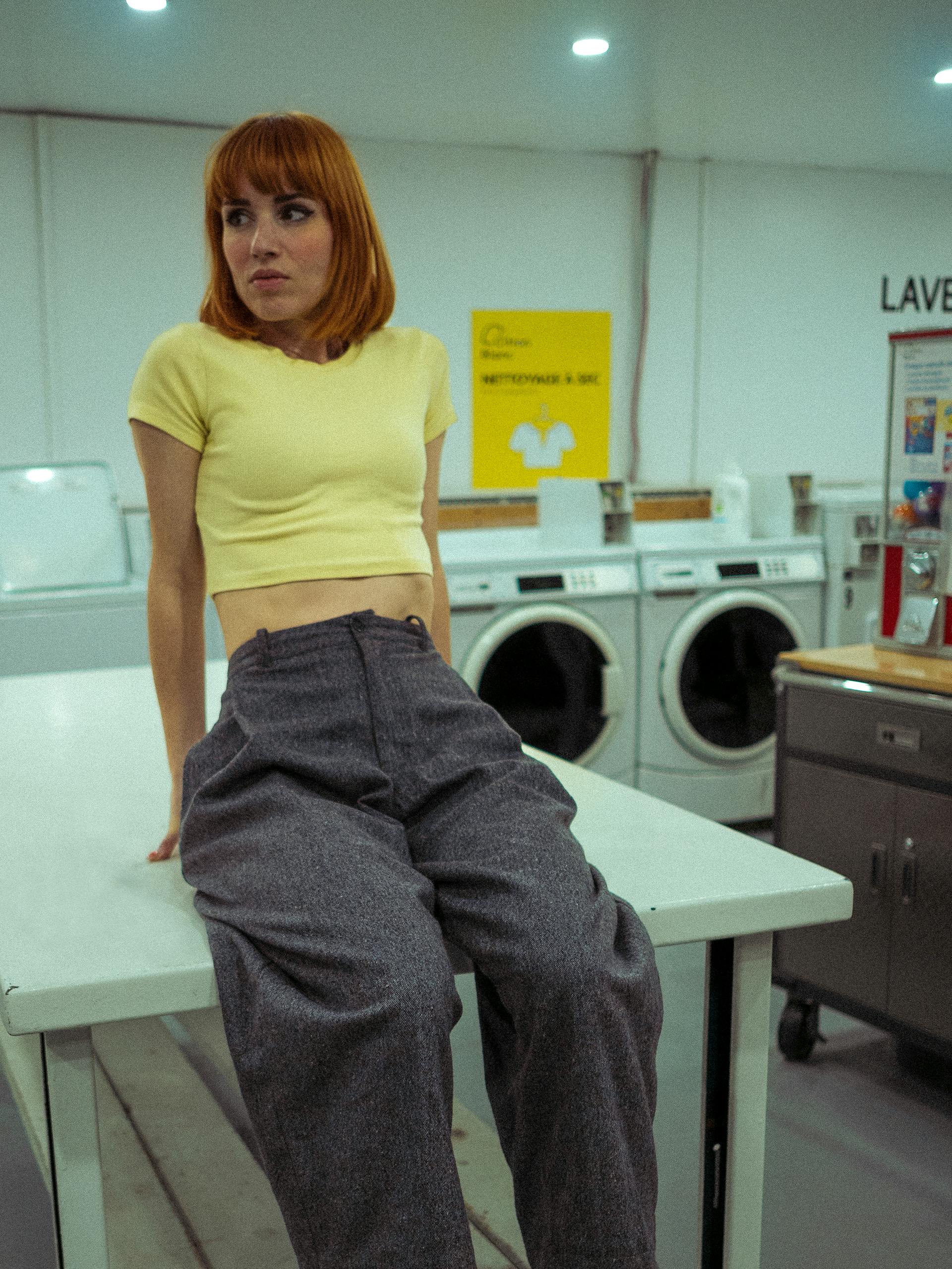
A woman in a laundry room | Source: Pexels
We all leaned in closer as Riley outlined her plan. It was petty, sure. Childish, even. But after weeks of sleepless nights and Michelle’s careless laughter ringing in our ears, it felt like sweet justice.
The next night, we put our plan into action.
Michelle stumbled home around 1 a.m., and as usual, she started banging on windows and buzzing apartments. Someone let her in, as usual, and I listened as she breezed upstairs.
We struck an hour later.

A woman glancing over her shoulder | Source: Midjourney
I went outside and kept buzzing her apartment for a full ten minutes. Eventually, her voice crackled over the speaker.
“Who is this, and what the hell is wrong with you?”
“Hey, Michelle! It’s me, Adrienne. I took Biscuit out and forgot my key. Be a pal and buzz me in?”
“Are you serious? It’s 1 a.m.!”
I couldn’t help but laugh. “Oh, but I always do it for you, so what’s the problem?”
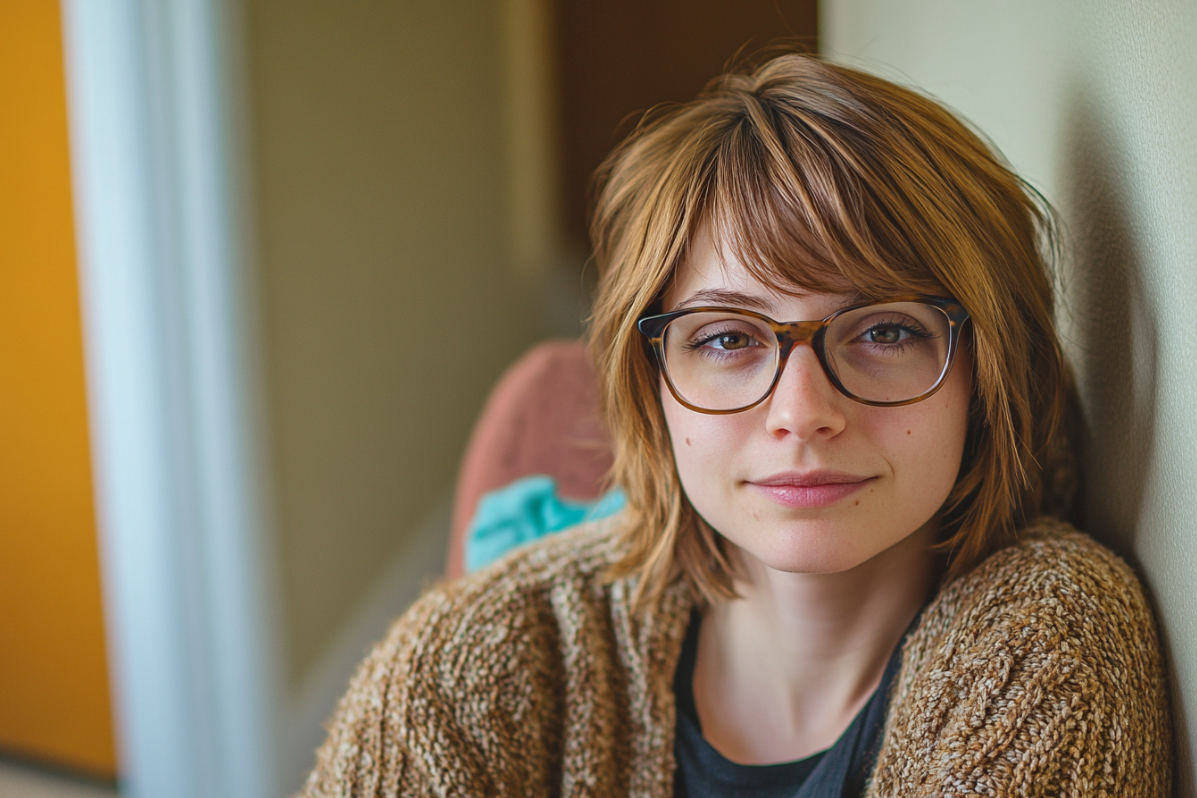
A smiling woman | Source: Midjourney
I heard her mutter something, but she let me in. I quickly texted Tiffany and rushed upstairs for the next part. I arrived at Michelle’s floor just as a series of sharp knocks echoed down the hall.
“Michelle? Michelle? Are you home?” Tiffany called out as she knocked on the door.
“Tiff? What are you doing?” Michelle groaned.
“Oh, I just wanted to check if somebody had let you in. Good night!”
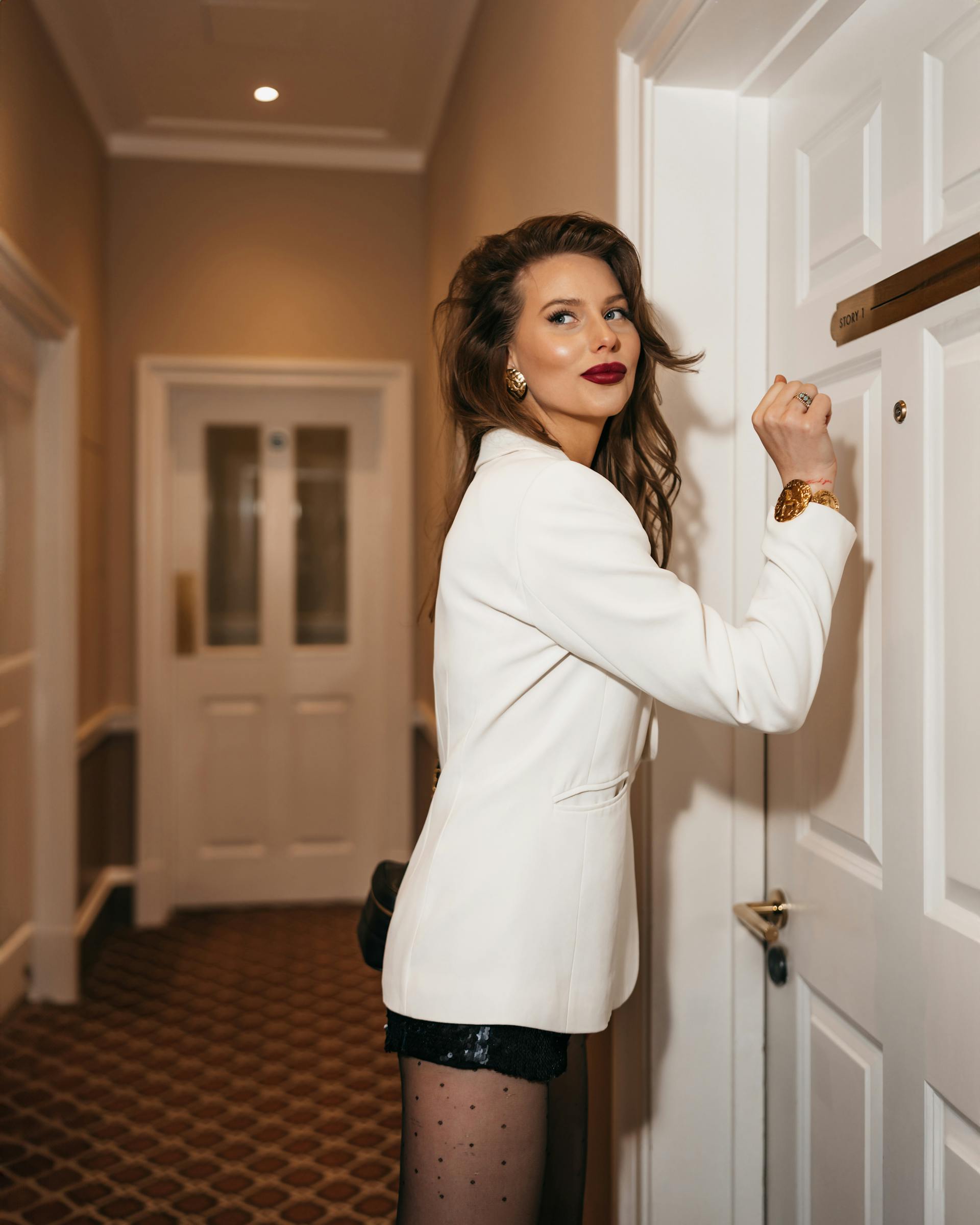
A woman knocking on a door | Source: Pexels
I leaned against the wall, stifling my giggles. But we weren’t done. Over the next few days, we kept up our campaign. If Michelle forgot her key, we made sure she couldn’t sleep. It was petty, yes, but it felt so good.
By day five, Michelle was a wreck. Her hair was a tangled mess, her designer clothes rumpled, and dark circles ringed her bloodshot eyes. As she trudged up the stairs, I almost felt bad. Almost.
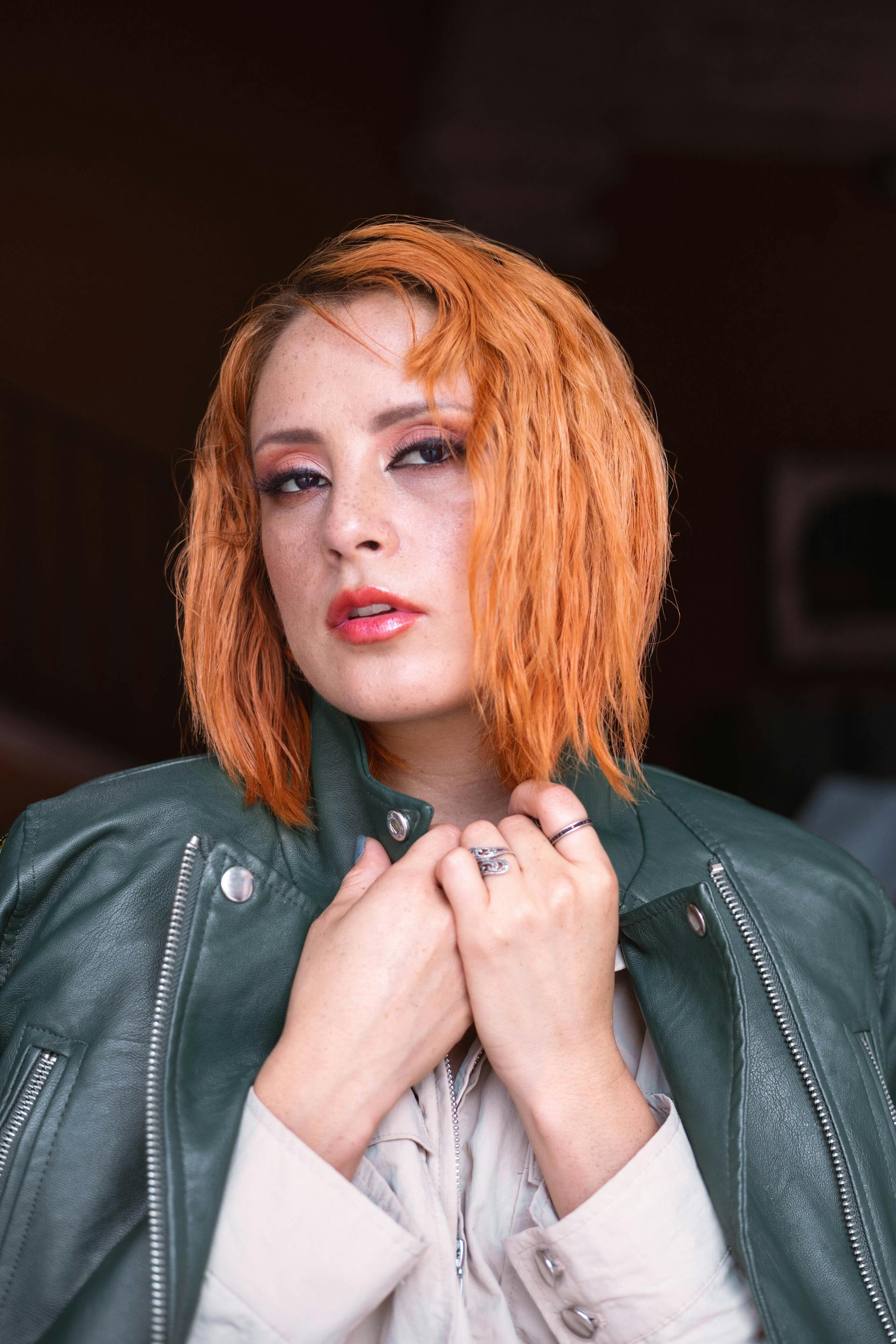
A tired-looking woman | Source: Pexels
“Please,” she croaked, her voice hoarse from yelling, “can you guys stop this? I get it, okay? Just stop waking me up every night!”
Tiffany, who’d come out to watch the show, couldn’t resist a jab. “Oh, so you do understand how annoying it is. Funny, you didn’t seem to care when you were doing it to us.”
Michelle’s lower lip trembled, and for a moment, I thought she might cry. But then she squared her shoulders. “Fine. I’m sorry, alright? I’ll start bringing my key. Just… please let me sleep.”
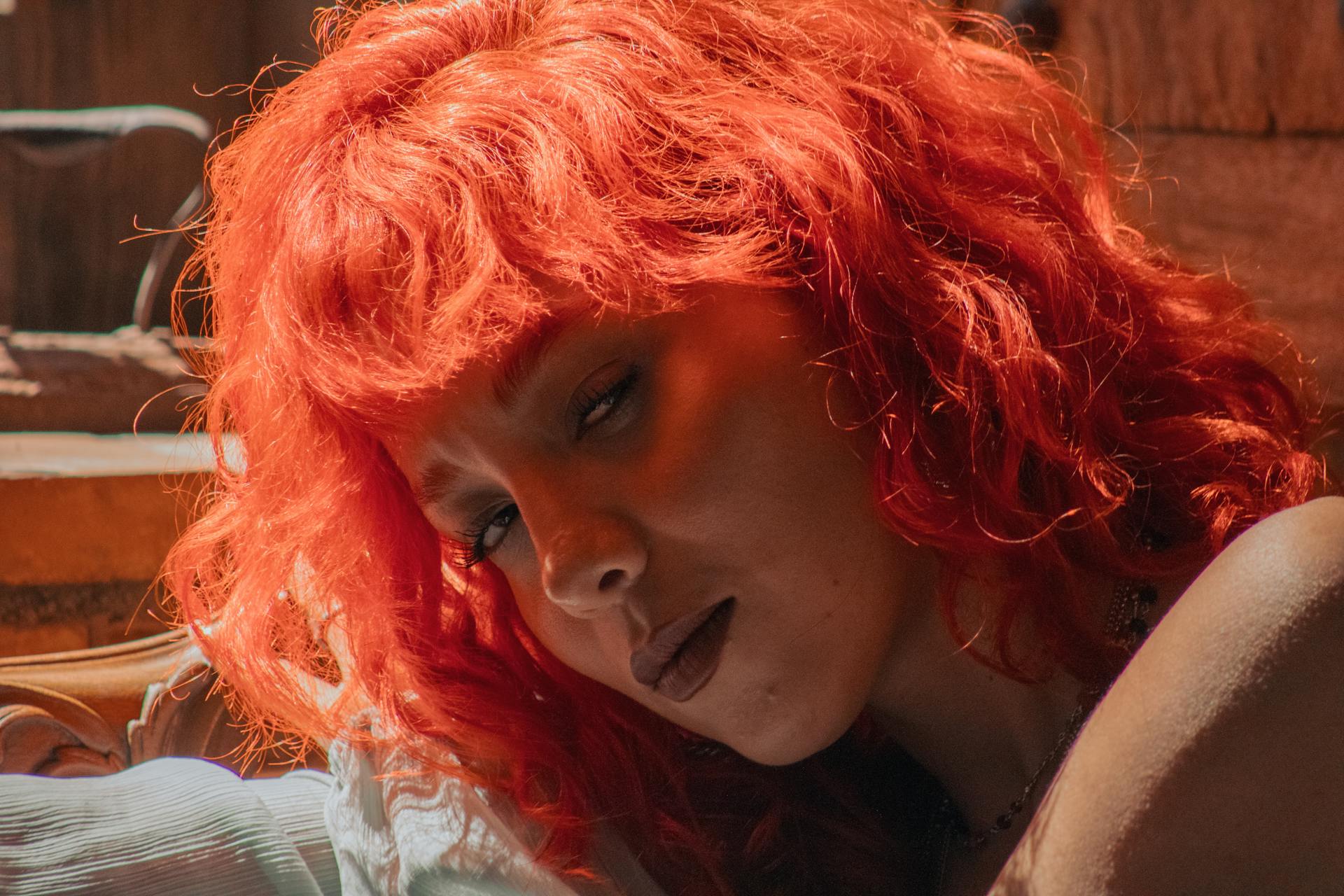
A woman glancing to one side | Source: Pexels
We all exchanged glances. It wasn’t a grand apology, but it was something. Slowly, we nodded.
“Okay, Michelle,” I said, trying to keep the triumph out of my voice. “We’ll stop. But remember—”
“Yeah, yeah,” she grumbled, fishing in her purse. “Always carry my key after 8. I got it.”
The next evening, I tensed as I heard Michelle’s distinctive clatter on the stairs. But to my surprise, there was no banging, no buzzing. Just the soft click of a key in a lock.

Keys in a door | Source: Pexels
I couldn’t help but smile to myself. “Funny,” I murmured, settling back on my couch, “how peace always comes when everyone finally starts playing by the rules.”
Biscuit wagged his tail in agreement, and I scratched behind his ears. Our little apartment block was back to normal — or as normal as it could be with Hurricane Michelle living upstairs. But hey, at least now she had the key to fitting in.
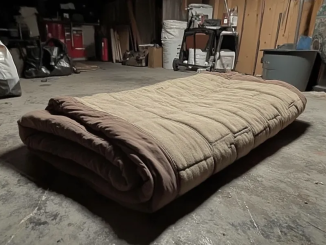
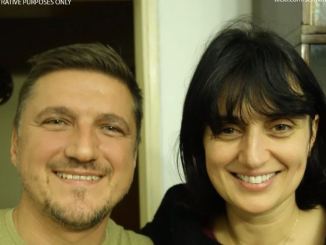
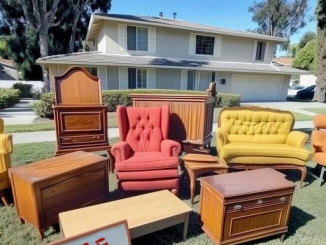
Leave a Reply